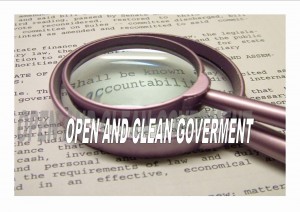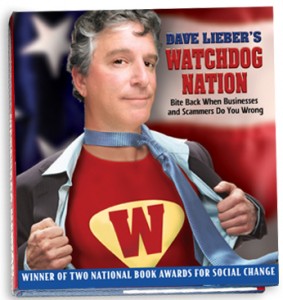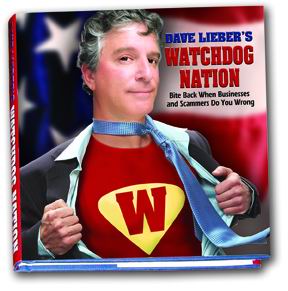Update to readers: After this piece appeared in the Fort Worth Star-Telegram Dave Lieber Watchdog column, the Texas Insurance Department changed its policy and restored open government. In August, 2012, State Senator Wendy Davis, D-Fort Worth, cited this episode in a letter to press release about a letter she went to Texas Gov. Rick Perry seeking the resignation of Texas Insurance Commissioner Eleanor Kirtzman. Here’s the original report, with slight updates.
# # #
With governments everywhere moving much of the people’s business online for easy accessibility, the Texas Insurance Department took a big step in the opposite direction.
Until September 2011, the department, which promises to protect insurance customers, publicly released the names of insurance companies and agents who violated state rules. The September announcement, for example, noted that Great American Assurance Co. was fined $195,000 for failure to file policy forms or endorsements containing property and casualty benefits and that the Texas Windstorm Insurance Association failed to process claims in a timely manner or pay claims for storm damage that is a covered loss. Information on violators was also available in the department’s newsletter, TDInSight.
No longer.
Less than two months after Gov. Rick Perry appointed Eleanor Kitzman state insurance commissioner, the department abandoned its longtime practice of naming names. The information was still available, but with some heavy strings attached. You had to write and ask for it.
For example, the most recent announcement, on April 25, says seven insurance agents had their licenses revoked and paid fines and restitution totaling $270,950. Want the names? Continue reading: “Copies of Commissioner’s Orders may be obtained by contacting TDI’s Public Information Office.”
That’s an extra step that most consumers searching for the latest news on violators probably won’t take. And it protects the names of offenders since they will no longer show up in Internet search results.
I asked the department how many people had requested the list, and the answer was four.
The Watchdog asked the department for an interview with Kitzman. Spokesman John Greeley’s response? “The commissioner is not available for an interview.”
– – – – – – – – – – – – – – – – – – – – – – – –
More Watchdog Nation News:
Watchdog Nation Partners with Mike Holmes
America meets Watchdog Nation/Listen to Fun Radio Interview
2012 Book Edition Debuts on Good Morning Texas TV show
– – – – – – – – – – – – – – – – – – – – – – – –
Go figure. Online you can find out about all kinds of licensed professionals who get in trouble with the state. No problem finding out the names of nurses who get their licenses revoked or suspended. Actions by the Texas State Securities Board are a click away. The Texas Medical Board issues news releases naming disciplined docs.
The State Bar eventually reports the names of lawyers who run afoul of ethics rules. The Board of Architectural Examiners reports on architects who transgress, and the Department of Licensing and Regulation reports on auctioneers, barbers, electricians and 26 other occupations.
Alex Winslow, whose group Texas Watch monitors the Insurance Department, said Kitzman’s “job is to police the insurance industry and look out for the interests of policyholders. And if she’s sweeping these disciplinary actions under the rug, she’s doing the exact opposite. She’s covering the backsides of unscrupulous agents and insurance companies.”
Why is this information important?
“From a consumer’s point of view,” Winslow said, “that information must be public and must be available so that insurance customers know what they’re dealing with, whether it’s an unscrupulous agent or a company with a pattern of unfair claims practices. This is key information that insurance customers need when they’re making a decision about what agent and what insurance company to use, and how they’re going to spend their hard-earned money.”
I sent the Insurance Department questions but received only this statement: “TDI strictly enforces the Texas Insurance Code and takes prompt action when entities (companies or agents) violate the law. While not every regulatory action is equally newsworthy, TDI will continue to highlight enforcement actions of greater or broader significance, especially instances of fraud, to serve as a deterrent.”
Kitzman, originally from Texas, made a name for herself as South Carolina’s insurance commissioner. She’s also a close friend of South Carolina Gov. Nikki Haley. Kitzman ran as a Republican for South Carolina lieutenant governor in 2010. She collected more than half her donations from the insurance industry, according to reports. She lost, but when she learned about the Texas opening, she applied and was selected by Perry.
Kitzman has been accused by critics of politicizing her regulatory office. A month after taking charge, she served as a star attraction at a September Republican fundraiser that attracted insurance bigwigs she’s supposed to regulate. The event was for her mentor, Haley. But it also served as Kitzman’s coming-out party, held at the Las Colinas corporate offices of Ethos Group, an insurance and consulting company. The Texas Observer released a copy of the invitation that said, “Also in attendance will be the new Texas Commissioner, Eleanor Kitzman.” Suggested ticket price to meet Haley and the commissioner: $500.
Her ties to the industry may call into question the reasons the department decided to protect the names of the disciplined.
# # #
Followup: After this piece appeared in the Fort Worth Star-Telegram Dave Lieber Watchdog column, the Insurance Department changed its policy. The names of those cited for improper actions were returned to the state website.
In August, 2012, State Senator Wendy Davis, D-Fort Worth, cited this episode in a letter press release about a letter she sent to Texas Gov. Rick Perry seeking Kirtzman’s removal from office.
# # #
Do you want to learn more about how to expose government wrongdoing? How to protect yourself from bad folks in the insurance industry? How to fight for openness in government and business? These tips and many others are in the award-winning book by Dave Lieber, author of this story. His book Dave Lieber’s Watchdog Nation: Bite Back When Businesses and Scammers Do You Wrong, shows you how to fight back — and win! The book is available at WatchdogNation.com as a hardcover, CD audio book, e-book and hey, what else do you need? The author is The Watchdog columnist for the Fort Worth Star-Telegram. Visit our store. Now revised and expanded in a 2012 edition, the book won two national book awards for social change.
Read The Watchdog Nation manifesto here!
Visit Watchdog Nation Headquarters![]()
Like Watchdog Nation on Facebook![]()















